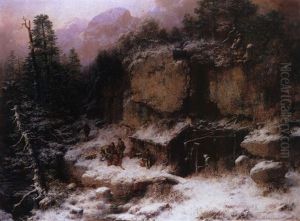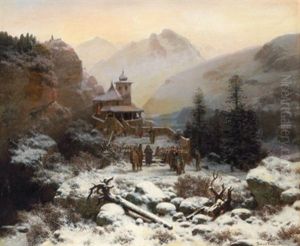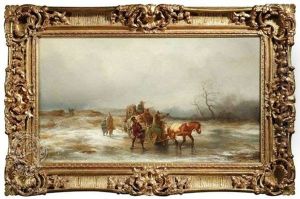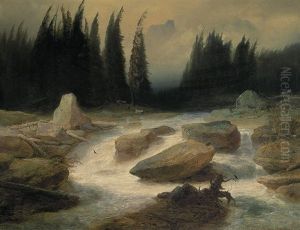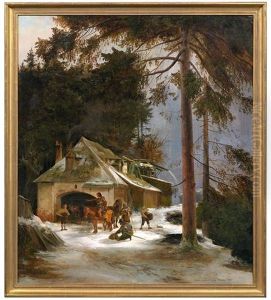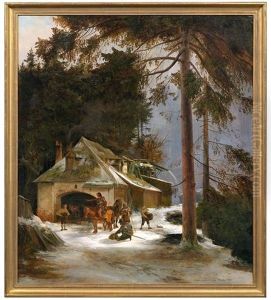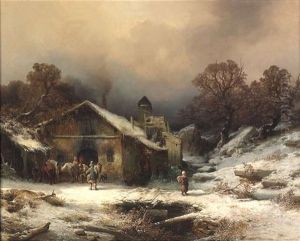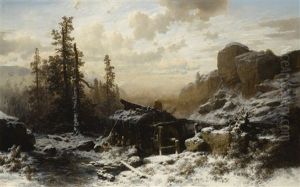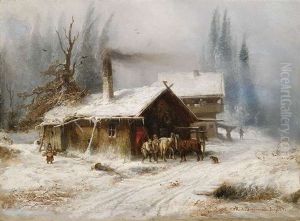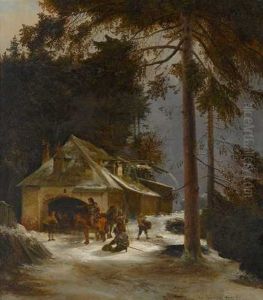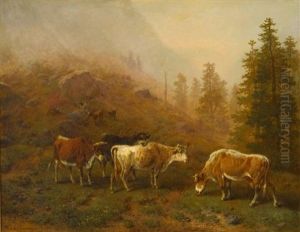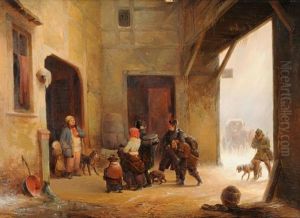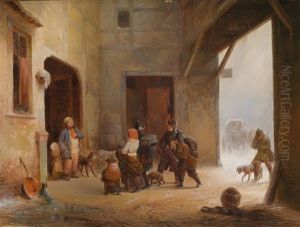Richard Zimmermann Paintings
Richard Zimmermann was a 19th-century German painter, primarily known for his landscape and genre paintings. Born in 1820 in Zittau, which was then part of the Kingdom of Saxony, Zimmermann exhibited an early interest and talent in the arts. He was part of a family of artists, which included his brothers Albert, Max, and Robert, all of whom had their own artistic careers. Richard, like his brothers, pursued his passion for art and became skilled in capturing the European countryside.
Zimmermann received his formal art education at the Academy of Fine Arts in Dresden, a leading institution in Germany at the time. After completing his studies, he traveled extensively throughout Europe, drawing inspiration from various landscapes and environments. His travels took him to countries such as Italy and Austria, where the rich natural scenery provided ample material for his paintings.
In 1854, seeking new opportunities and inspired by the promise of the New World, Zimmermann emigrated to the United States. He settled in New York City, where he became part of a vibrant community of emigrant artists. The American landscape, particularly the unspoiled expanses of the American West, provided fresh subjects for his canvases. He is known to have produced works that captured the majesty of the Niagara Falls and the rugged beauty of the White Mountains.
Throughout his career, Zimmermann's paintings were characterized by their detailed realism and vibrant use of color. He had a particular talent for depicting the interplay of light and shadow, which brought his landscapes to life and gave them a romantic, almost ethereal quality. Despite the challenges of the art market and the Civil War period, Zimmermann managed to gain recognition and success as an artist.
Richard Zimmermann's contribution to the arts continued to be celebrated after his death in 1875. His works can be found in various art collections and have been displayed in numerous exhibitions, highlighting the enduring appeal of his picturesque landscapes and genre scenes.


